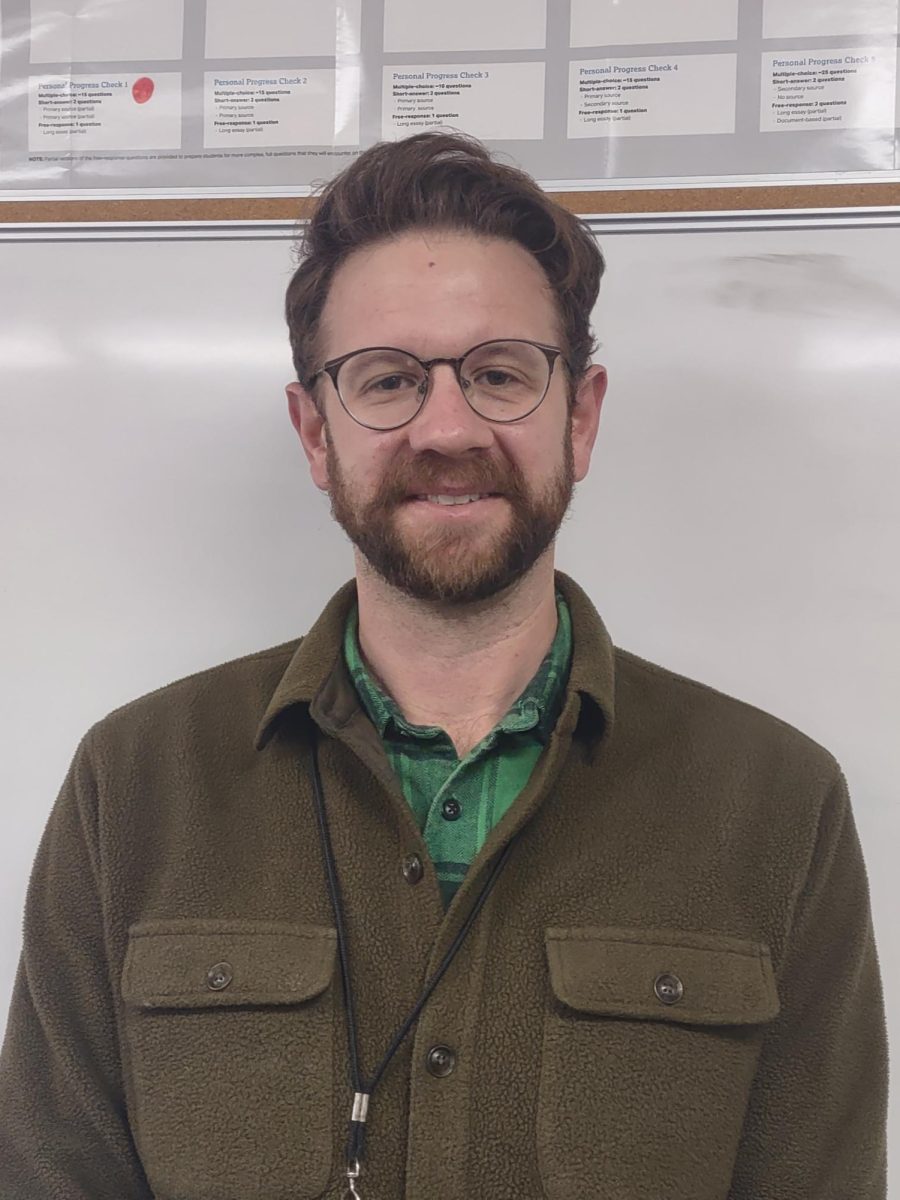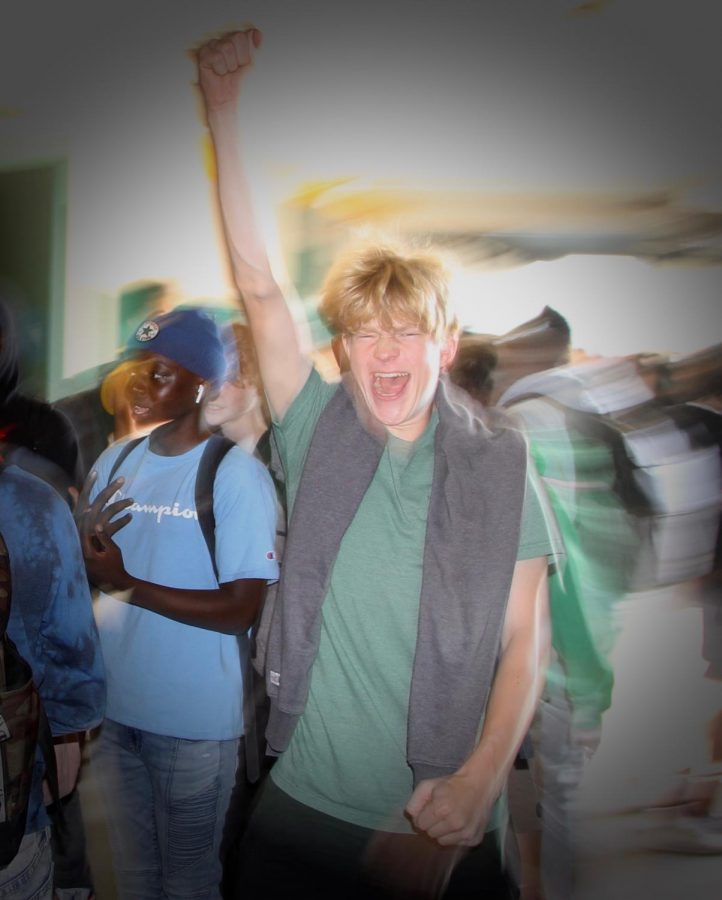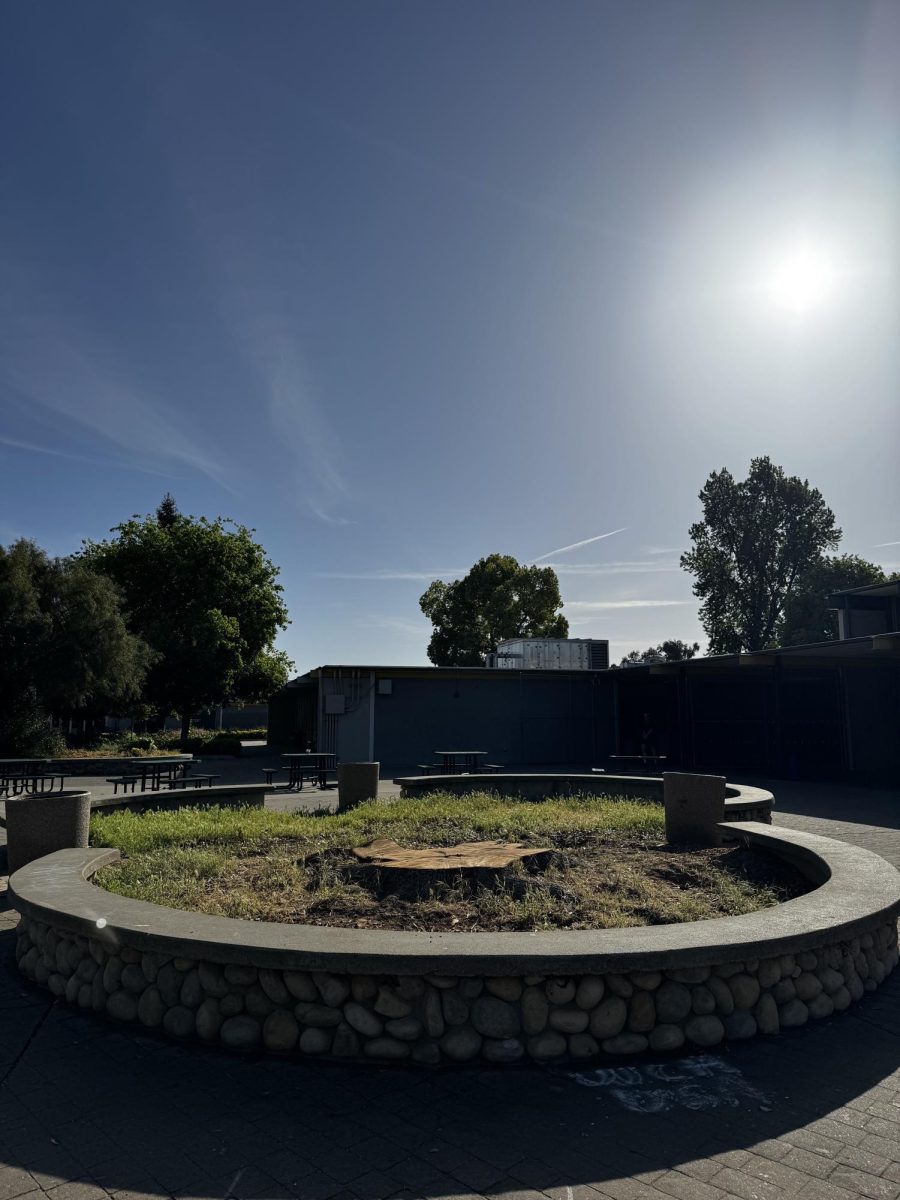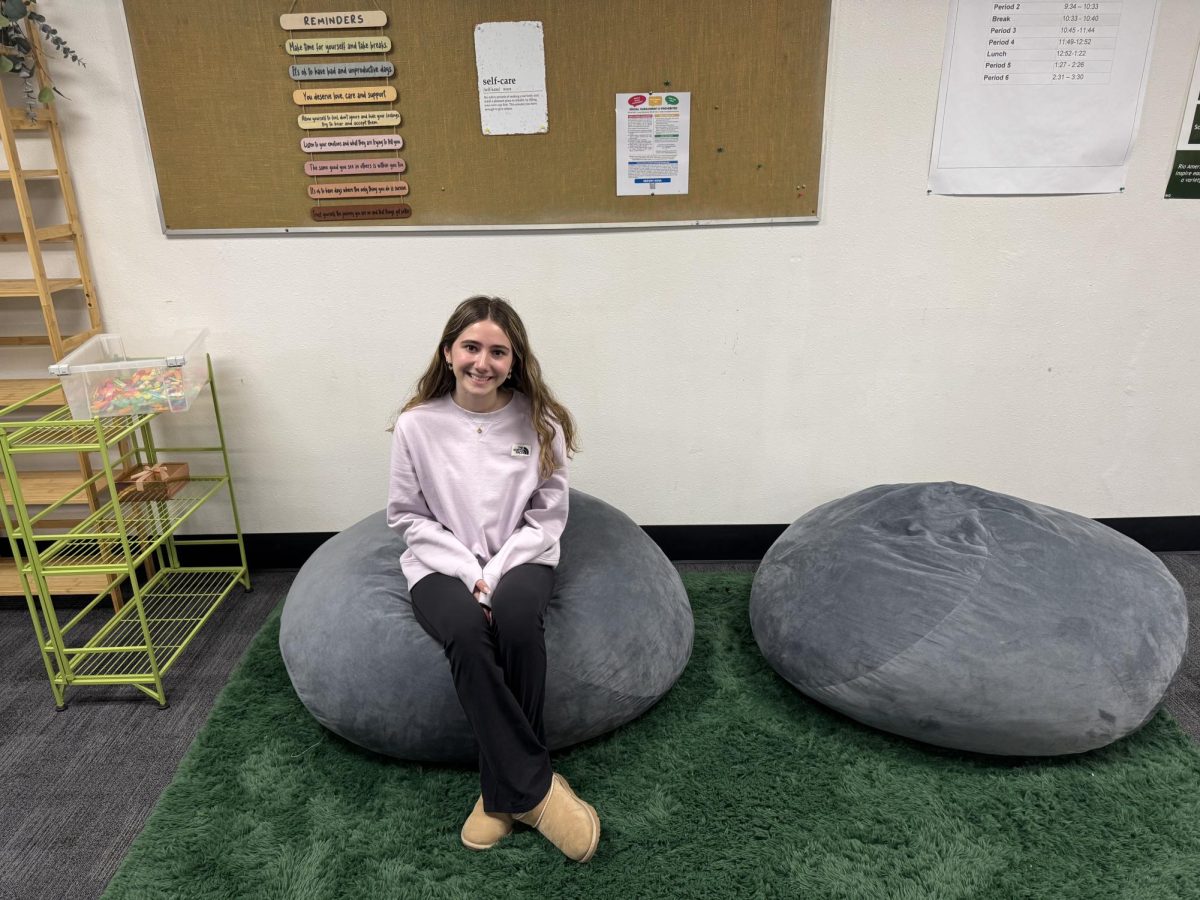“To achieve mastery in any field you first need to find your own unique voice,” novelist and Rio Americano High School alumna Shanthi Sekaran advised students who attended her talk in the campus theater last week.
“The thing that I want you to take away from this is that learning and choosing what you want to do with your life and getting better at it is all about finding your voice and it doesn’t matter what that involves,” Sekaran said. “You could be a doctor, you could be a music teacher, you could be an accountant, but you do it in your way… You do things in your voice and that’s when you find your mastery.”
Sekaran said she is still working to find her voice, but she has shown mastery in two well-received novels, two young-adult books and three years of writing for the medical drama “New Amsterdam.”
Almost 30 years after graduating in 1995, Sekaran returned to Rio to speak to about 100 AP Language students about her life and her 2017 novel, Lucky Boy, which they had read for their summer reading assignment. Most of her nearly two-hour talk was a question-and-answer session.
Lucky Boy follows the stories of Soli, a young Mexican woman who enters the United States without documentation, and Kavya, an Indian American woman who struggles to fulfill her dream of having a baby. When Soli is detained, her toddler–the “luck boy” of the book’s title– is placed in Kavya’s care, and Soli must fight to get her son back while Kavya fights to keep him.
Sekaran said her novel was inspired by a story she heard on NPR. A Guatemalan woman was detained in the United States, and her child was placed in the care of an American couple.
“I think what helped me to the story was that this American couple clearly loved this little boy, but they were destroying … the life of this Guatemalan mother,” she said. “So that’s what got me, and then I researched it, and I realized, oh, my God, this is not, like, a one-off case.”
Lucky Boy also pits fundamentally good and likable characters against each other.
“I think a key message that I want you to take away is that very often when someone does something that hurts someone, they’re not setting out to hurt someone,” Sekaran told her audience. “And often it’s the larger societal structures that create these situations where people end up hurting each other. So it’s,
Sekaran’s other books include The Prayer Room, which takes place partly in India and partly in the suburbs of Sacramento where she grew up, as well as her middle-grade novels The Samosa Rebellion and Boomi’s Boombox. The daughter of two doctors who immigrated from India in the 1960s, Sekaran focuses on immigration and Indian American characters in her books.
During her time at Rio, Sekaran was involved in student government, the Beatles Club and Spanish Club. She recalls reading in AP Literature two of her favorite books, “Wuthering Heights” and “Beloved,” books that she reread for inspiration and craft while writing and revising “Lucky Boy.”
After graduation, she attended UC Berkeley, where she received her BA and an MA in South Asian Studies before entering a creative writing program at Johns Hopkins University. After getting married, Sekaran and her husband moved to the United Kingdom. During her six years there, Sekaran enrolled in a Ph.D. program at the University of Newcastle, where she started work on her first novel, The Prayer Room, published in 2010.
Once she moved back to California with her family, settling in Berkeley, Sekaran began work on Lucky Boy. While writing, she began to feel as though the story lacked authenticity despite extensive research; she was writing the experience of a Mexican immigrant, which she could not relate to. She decided to travel to a small town in Mexico to learn what she could about the physical environment.
“I could never have the lived experience, but I could see interactions, customs, little details of life there,” Sekaran said.
Although the first draft of her book took around two years to write, it wasn’t until 2017 that the book was finally published, as she faced three years of rejection. After rounds of rejection and extensive revision, Sekaran received an enthusiastic offer from Putnam Publishing, which she took.
“I like to say that being a writer is just a series of small complications. But it happens to the best of us. It happens to everyone,” Sekaran said. “What kept me going? There’s always the promise of a new book.”
For a slideshow on Shanthi Sekaran’s talk at Rio click here.




































